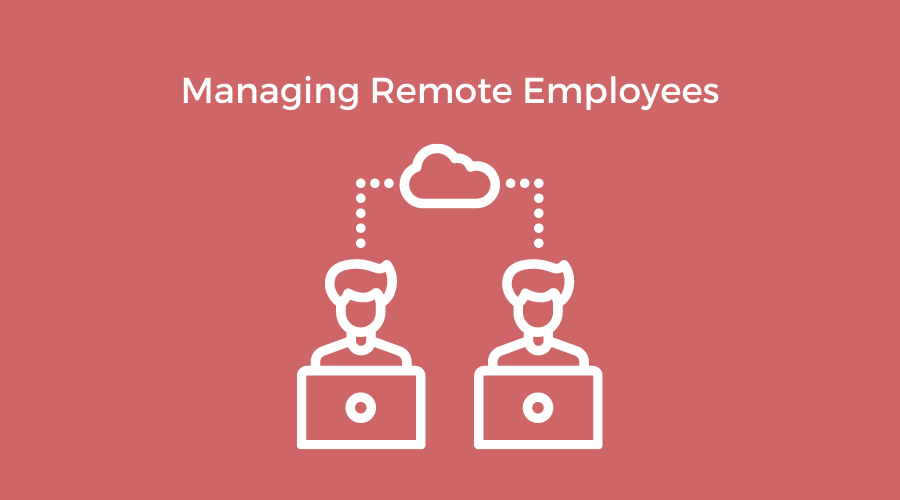As more and more companies embrace hybrid work, they’re finding managing remote workers requires more than good communication and collaboration tools. Maintaining the company culture is at least as big a challenge, say business leaders. Employees add training and career development to the list.
The experience over the last 18 months has taught us much about effectively managing remote workers. Managers have learned that teams can be as productive – or more so – working remotely, which is an important part of trust, an essential part of successfully managing remote workers.
In fact, trust is one of the nine tips the research and advisory firm Gartner offers for managing remote workers. “Managers may be concerned and even frustrated to lose the constant visibility they once had into their employees, but don’t respond by micromanaging,” cautions Gartner.
In our list here of some best practices tips for managing remote workers, we put trust first. Its importance can’t be overrated and not just for those working remotely. It is fundamental to building a strong relationship between manager and employee and manager and team whether onsite or working remotely.
From multiple sources, we’ve collected the best practices and tips and condensed them into top five with trust being #1.
Managing Remote Tip: Communicate in multiple ways
It doesn’t matter how you do it – sophisticated tools make it easier –staying in regular contact with your remote workers is critical. Tailor the method of communication to the nature of the message. A tool like Slack is ideal for short and quick notes and reminders. Email is best for longer messages, updates, detailed instructions for a project and the like.
Choose video calls for team meetings and regular one-on-ones, but don’t just make them all business. Encourage remote workers to share personal stories – water cooler talk – to build camaraderie and strengthen interpersonal relationships.
McKinsey, a global business consultancy, says, “Videoconferencing, which, compared with audio, improves the ability for participants to show understanding, anticipate responses, provide nonverbal information, enhance verbal descriptions, manage pauses, and express attitudes.”
Managing Remote Tip: Set clear expectations early and often
Even when an entire team works together in an office, misunderstandings and ambiguity about expectations, assignments and policies occur. Remote work only compounds the problem. Setting clear expectations, communicating them regularly, ensuring everyone has heard and understands what they are and getting their buy-in avoids confusion, disagreements or worse.
“There will be questions,” a business executive tells the Society for Human Resource Management. “Be accessible and provide clarity on priorities, milestones, performance goals and more. Outline each team member’s availability and ensure you can reach them when needed.”
Managing Remote Tip: Build relationships; be transparent
This requires good and frequent communication, but goes a step further. With an onsite team a manager will get to know their family, their hobbies and how they spent their weekend just by being around them and hearing people talk. Managing remote workers requires a deliberate effort to learn those details, which are so much a part of building personal relationships.
Just as team meetings should intentionally include small talk, every conversation with a remote employee should include this kind of personal connection. Individuals may feel awkward about intentionally sharing even such benign details as their plans for the weekend, so jump start the conversation by sharing first.
Set up a Slack or other communication channel for team chit-chat and contribute to it.
With members scattered across multiple time zones, rotate the starting time of all-hands calls. Never schedule them solely for your convenience.
Be as transparent as possible. Treat each member of the team equally. If there’s company news to share, inform everyone at the same time.
Honest and regular feedback is even more important for remote workers who lack the visible and subtle cues of onsite workers. Feedback should be via scheduled one-on-ones as well as employee-driven performance conversations. In these conversations discuss career development and opportunities for training and stretch-assignments.
Regular feedback and recognition play an important role in managing remote workers as it lets them know where they stand and how they’re doing.
Managing RemoteTip: Recognition is essential
Recognize workers and their contributions publicly. Some managers make “brags and praise” a part of every meeting, giving workers a chance to point out their own successes and to call out their colleagues for their efforts.
Gartner says, “Effective recognition not only motivates the recipient, but serves as a strong signal to other employees of behaviors they should emulate.” It reinforces the team and organization culture and, as studies and research have demonstrated, consistent recognition improves engagement.
In General
If these tips sound familiar, they should be. They are the fundamentals of all good management. Managing remote workers amplifies their importance. The lack of personal and often impromptu face-to-face interactions amongst co-workers can easily create feelings of isolation and disengagement if managers aren’t proactive in nurturing a feeling of belonging and team.
Especially for hybrid teams, where some work remotely and others are present in the office, it may be easier to assign a plum project to a worker you see every day. That signals to those working remotely that you play favorites and their career prospects are dimmed because they aren’t present.
Leaders therefore need to always be aware there’s truth in the old adage that “out of sight is out of mind” and consciously work to stay in touch with their remote workers and treat them equally.
Managing remote workers does take greater skill and a different style of leadership. Not every manager is a good fit for leading a remote team. Those who are and those who invest the time and training to learn how, find the successes and satisfaction are every bit the equal of leading a team you can see.
### John Zappe contribution ###


